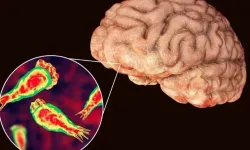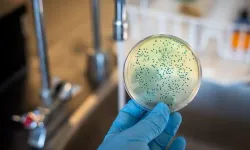A research team from the University of Florida tested a molecule-based drug called SLU-PP-332 on obese mice. In the tests, the experimental team succeeded in accelerating the metabolism of the mice, increasing muscle mass gain and weight loss.
In addition to factors such as healthy nutrition, regular sleep, avoiding smoking and alcohol consumption and staying away from stress, it is indisputable that sports are necessary to live a healthy life.
It is scientifically proven that regular exercise increases happiness hormones in the body, reduces heart and respiratory diseases, prevents diabetes and even helps to cure some cancers.
The benefits of sport do not stop there. According to the UK's National Health Service (NHS), sports stimulate the nervous system in the brain, reducing stress and minimizing the risk of depression or dementia.
According to the World Health Organization (WHO), the average person should get between 2.5 and 5 hours of moderate-intensity exercise per week. Unfortunately, worldwide data shows that 25 percent of adults and 80 percent of young people do not follow this recommendation.
For many years, scientists have tried to develop ways to mimic the positive effects of physical activity without tiring the body.
With this new development, they may be close to succeeding.More muscle, more fat burn
The team, led by Prof. Dr. Thomas Burris from the University of Florida, tested this new drug, a molecule called SLU-PP-332, for 28 days. The research results were published in the academic publication Journal of Pharmacology and Experimental Therapeutics.
The drug, SLU-PP-332, was studied as part of a therapeutic method known as "exercise mimics", which investigates the effects of physical movements on the human body.
"The compound of this drug basically tells the skeletal muscle to make the same changes you see during endurance training," Prof. Burris said.The scientists observed that the mice in the experiment had increased energy expenditure, meaning they burned more calories, just as if they were exercising, without any change in their habits.
In addition, the bodies of the mice taking this drug stored less fat during the experiment and their metabolic systems also improved.
In this experiment at the University of Florida, researchers focused on receptors called ERRs, which are receptors for estrogen (the female hormone) inside cells.
ERR receptors are found in parts of the body that require a lot of energy, such as muscles, heart and liver. For ERRs to increase, the body needs to move. The SLU-PP-332 molecule in the developed drug also increases ERRs without exercise.
After a certain period of time, the body starts burning fat as well as sugar and carbohydrates. This takes 20 minutes in an average person. In other words, to burn fat, it is necessary to accelerate the heart rhythm through sports and to do this for more than 20 minutes.
Prof. Burris states that similar effects were seen after the use of the drug they developed: "When we gave mice the SLU-PP-332 molecule-supported drug, we observed that the animals' metabolism switched to burning fat, meaning that their metabolism switched to using fatty acids, very similar to what humans use when fasting or exercising. The mice just started using more energy to go about their lives as normal."
The experimental mice given SLU-PP-332 lost 12 percent of their body mass by the end of the process and stored 10 times less fat than other mice on a normal diet.















